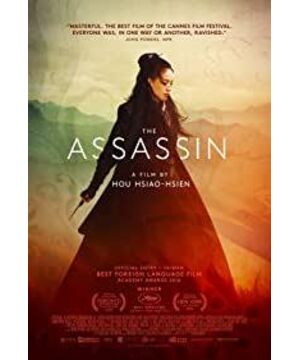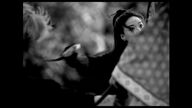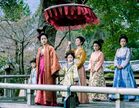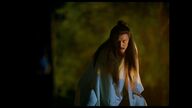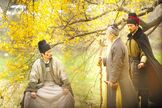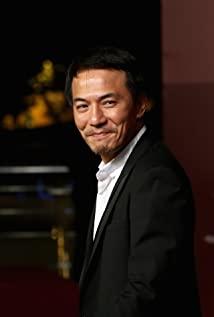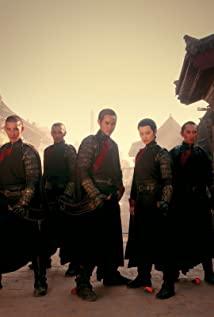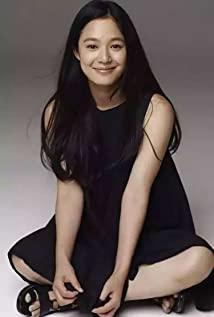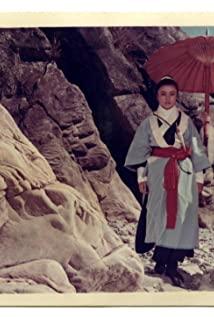I saw a classmate who was also a film major commenting on "Turn Over, Tumor Jun" in the circle of friends. He said that he cried when he watched it. He said that he cried when he watched it and thought it was very advanced. I cried too, and I soberly knew that I cried in all the places the director wanted me to cry: like when a poor father confronted his terminally ill son and told imaginative lies; like being a stranger to a supermarket The father of his father, when he was choosing a favorite snack for his daughter who was about to pass away, finally burst into tears; for example, in order to take care of the patient's mentality, all the friends accompanied the heroine by shaving their heads bald and pretending to be "braised eggs", laughing in the snow after the success of their ex-boyfriend's revenge Time... So I don't think it's high-level to cry, so I cried and cursed in my heart, trying my best to maintain the dignity of a professional film critic on the body of a promiscuous audience.
Why do I think this cry is not advanced? Because these story bridges inspire my most basic, instinctive, and animalistic imaginations. I cry, not because of the people, events, and scenery in the story, or even because of the relationship and resonance between the characters; but because of the overly typical scenes and typical images, which made me recall more movingly in an instant. My news, my own mother's tears, and the warmth and more often public loneliness of friends and family. I cry because of my own business, and the plot itself is just a connecting point that helps me make connections. In other words, what stimulated my lacrimal glands was not so much the movie itself, but rather a theater with three dark sides and an illusion, which could give me a sense of security.
"Tumble, Tumor Jun" is indeed a fairly good commercial entertainment film in mainland China. I secretly think that how many limited words are needed between "not bad" and "movie" to prove that this film is in the "movie" category. In the world, it is probably in the first few ranks. Despite the fact that it is based on real people, despite the foreshadowing of comics and dramas, it is only a high-concept movie under the banner of Hollywood business, and it is far from the unique experience of an individual's life facing death. What is a high-concept movie? A movie that can be summed up in one sentence. This is a story of an optimistic girl who faces a terminal illness and lives every day before her death. No matter how moved it makes you cry, it is still a well-established genre film that can be mass-produced. And as a Chinese, mainland, commercial, and entertainment film, it even needs the audience to tolerate some problems that should not appear in industrial assembly line operations, such as too many coincidences, such as worrying about the acting skills of supporting actors, such as lack of details of illness...
Then What exactly is a non-basic, non-instinctive, non-animal imagination? What kind of movies can inspire audiences to have a more advanced viewing experience? Nabokov wrote in an article titled "Good Readers and Good Authors" that he believes that if a book only reminds readers of the people around them, what they have experienced, and even an impact on a country, A landscape and a way of life that produce nostalgic "nostalgia" are not within the scope of the "imagination" he advocates. Of course, the worst of these is actually giving the audience the illusion that they are a character. So what are the tools that readers should mobilize when facing the work? He thinks it should be an impersonal imagination and an artistic joy. He believes that a harmonious interactive relationship should be established between the reader and the author, so that the reader is not only a little bit alienated and a little bit of his own space in front of the work, but at the same time can strongly feel the tears of the characters in the story and trembling. The transmission of emotions must be combined with the beauty of alienation. This complex imagination is the biggest feature of "Assassin Nie Yinniang".
"Assassin Nie Yinniang" is a good Taiwanese literary film. Hou Hsiao-hsien used his best gazing method—a long shot from a fixed camera and the most handy lyric method—empty mirrors and pans to keep the distance between the viewer and the author just right. The mountain tops shrouded in clouds and mists - the illusion of the Tao, the rooms with light gauze curtains - the trouble of love, the fields with light candles - the call of home and country. Zhang Zhen is like a irascible lion, Shu Qi is like a light cat. Benevolence, chivalry, morality, love, all the contradictions and entanglements are all brought into the last long shot of the film, the back of Nie Yinniang gradually receding. It will eventually dissipate, but it is like a lingering sound that lingers in the ears.
I disagree with both views. One is the narrow "minority literaryism" of "I Don't Want to Recommend
View more about The Assassin reviews


